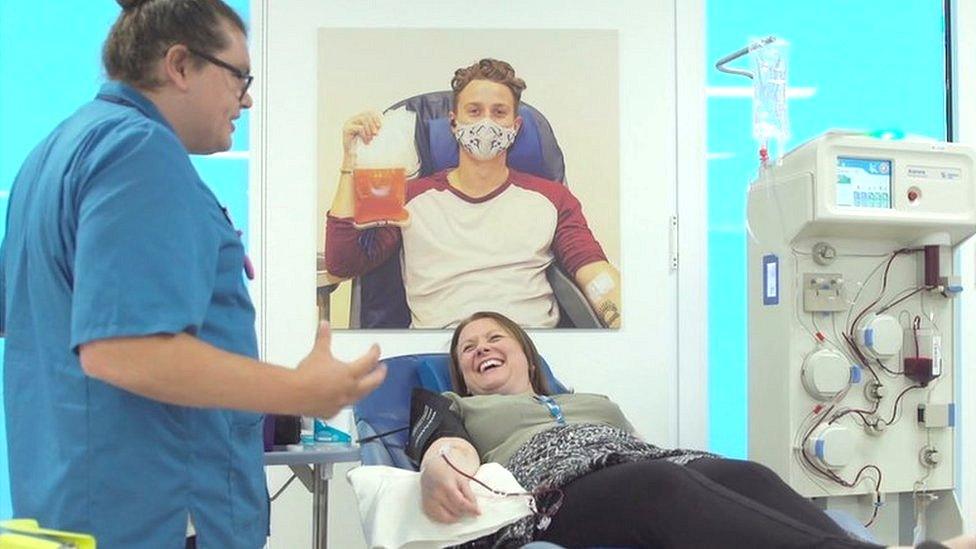Reading: NHS centre says its needs more plasma donors
- Published
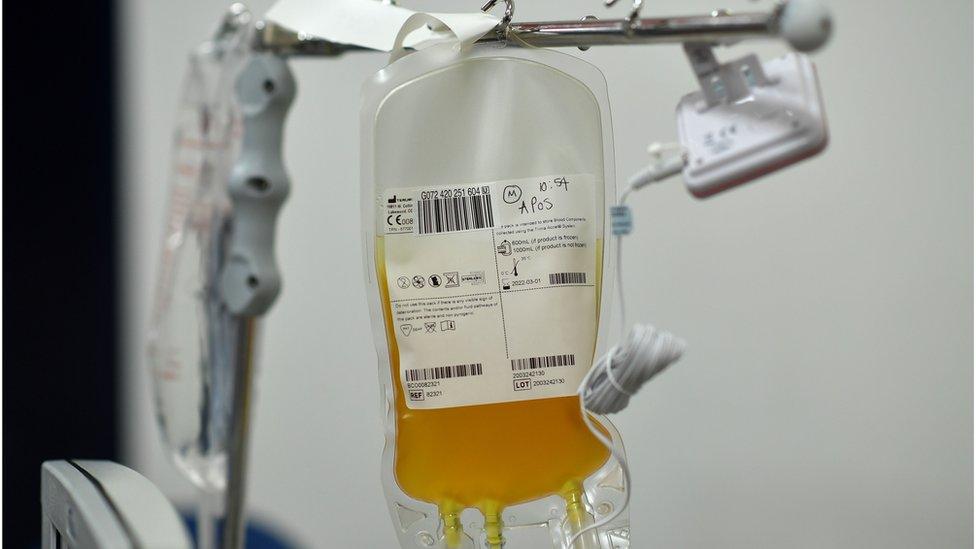
The NHS needs more people to donate plasma
An NHS donation centre is struggling to recruit enough new plasma donors because many people do not realise they are eligible to donate.
The Reading donation centre receives about 2,400 donors - but another 2,300 are needed over the next year.
Plasma can be used to make medicines that treat more than 50 conditions.
Nursing team leader at Reading Plasma Donor Centre, Shannon Weetch, said donating plasma "feels great".
Plasma is a yellow liquid that makes up about 55% of the blood.
It carries platelets, red blood cells and white blood cells around the body, and also contains antibodies, known as immunoglobulins, which fight infection.
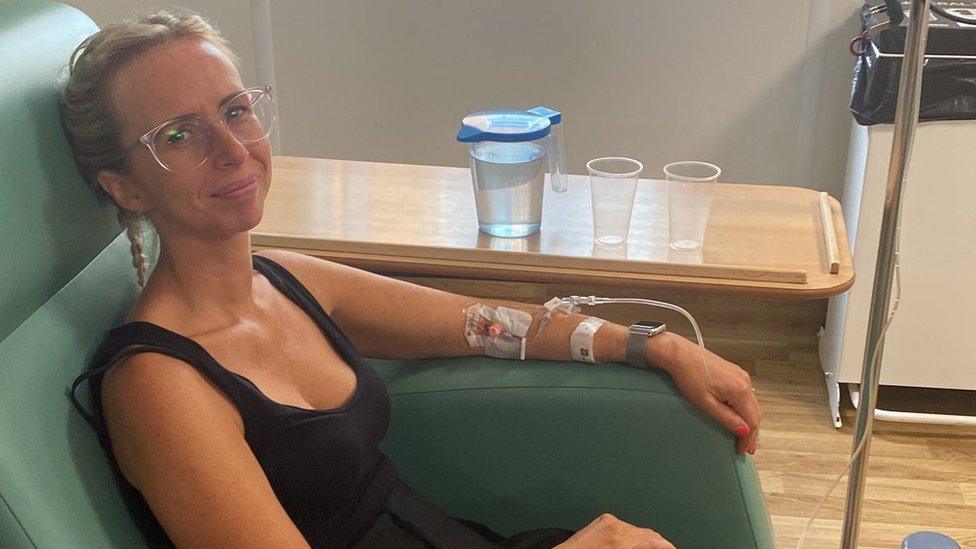
Ms Stone, 37, from Reading uses plasma to be treated for a rare autoimmune disease
Donated plasma is used to treat trauma, burn and shock patients. It is also used in medicines for immune deficiencies and bleeding disorders.
Donation is similar to blood donation and takes roughly 35 minutes.
The difference is blood is gradually run through a machine that separates out the plasma.
NHS Blood and Transplant is running the All Types Can Save Lives campaign this month with the message that most people can donate, no matter their blood type or background.
People supporting the campaign include Emma Stone, aged 37, of Lower Earley in Reading, who receives immunoglobulin for a rare autoimmune disease, called chronic inflammatory demyelinating polyneuropathy.
Her immune system attacks the nerves that send signals to her muscles. Her condition became so bad she often needed a wheelchair.
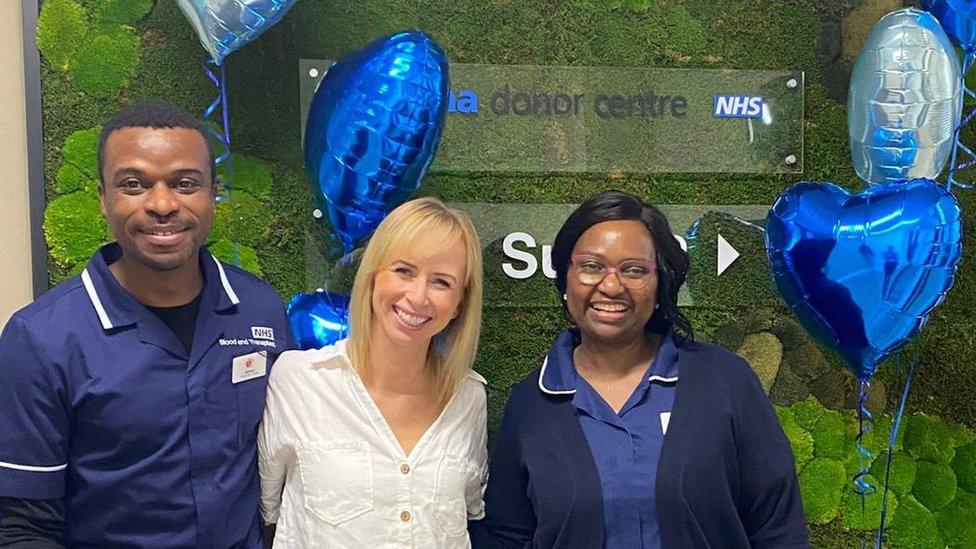
Ms Stone said she could have been paralysed if she had not received a plasma donation
Ms Stone was diagnosed in January 2022 and now has regular infusions at the Royal Berkshire Hospital.
Ms Stone, a beautician and mum of two, said: "It was scary and very traumatic for my children to see. The treatment has given my kids their mum back again."
For more than 20 years the NHS has relied on imports, but supplies are short and expensive.
Lee Wright, of NHS Blood and Medicine, said: "It's life changing, it really does save and change lives as it can treat the rarest of diseases.
"Previously we have always had to buy the product in from around the world, so we are trying to be self-sufficient."

Follow BBC South on Facebook, external, X, external, or Instagram, external. Send your story ideas to south.newsonline@bbc.co.uk.
Related topics
- Published28 July 2023
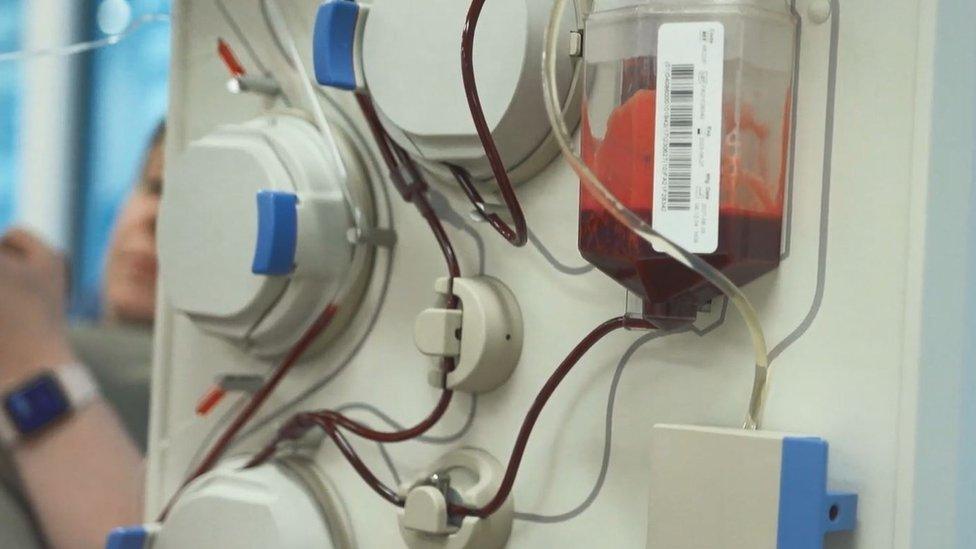
- Published13 November 2023
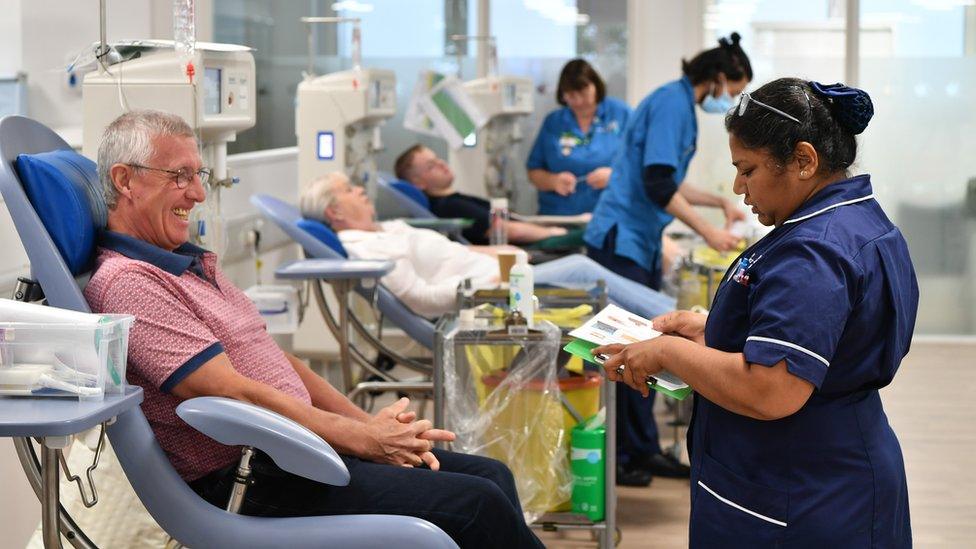
- Published13 November 2023
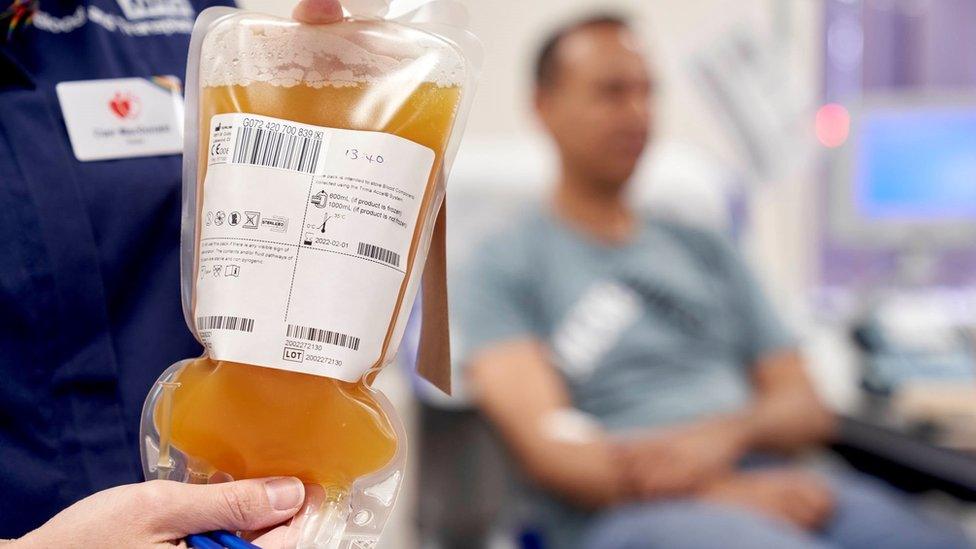
- Published24 April 2023
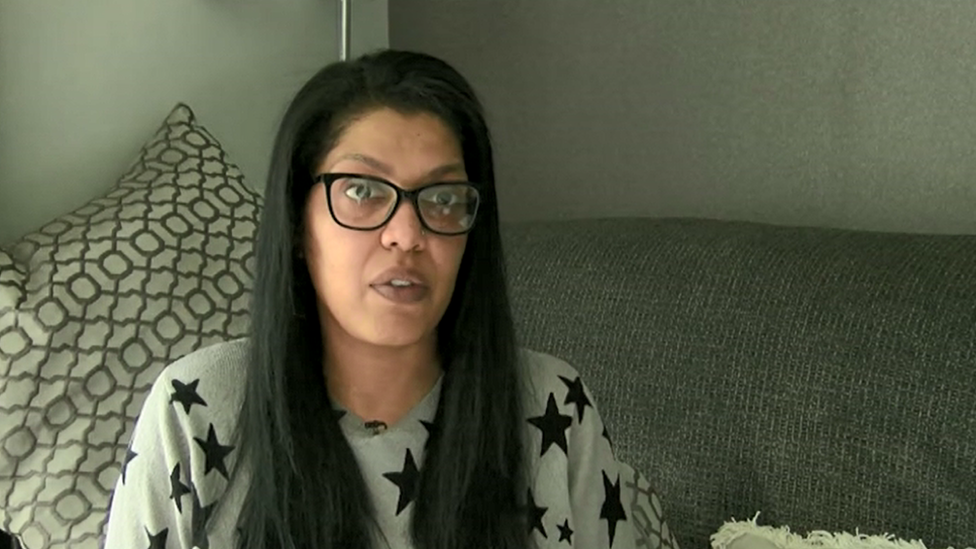
- Published24 April 2023
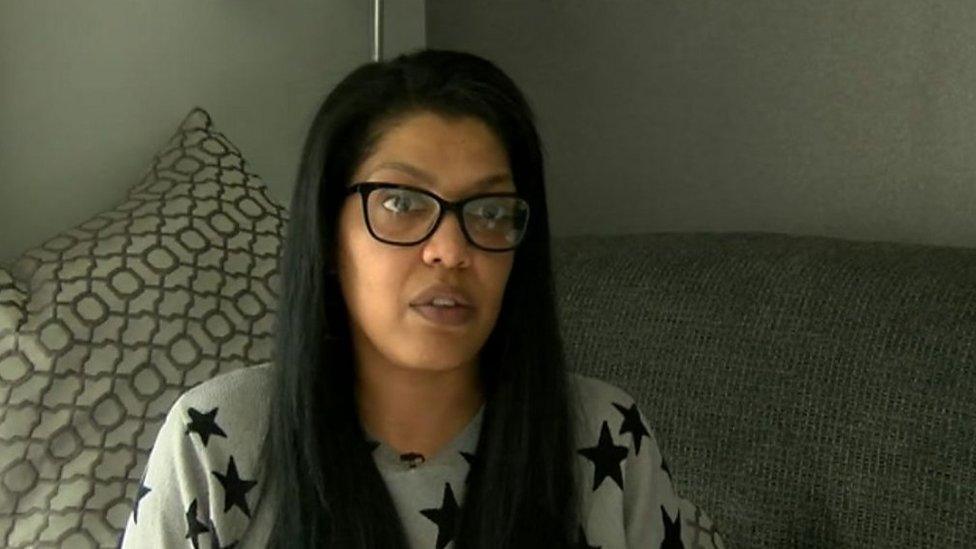
- Published14 July 2022
